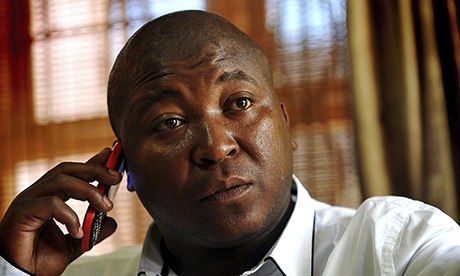
The news of the “fake sign language interpreter” traveled the globe. But what of the everyday failings of systems that leave access by the wayside through lack of scrutiny? Brandon Arthur calls for specific action by sign language interpreters to monitor and ethically deploy qualified interpreters.
The terrible cocktail of “schizophrenia,” unethical business leadership, and uninformed government decision-makers that lead to the sign language interpreting debacle at Mandela’s memorial service is a tragedy.
As a sign language interpreter, I cringe at the thought that as a field, we are responsible for the world’s distraction from the celebration of one of the planet’s most widely recognized human rights leaders and for yet another injustice served up to the Deaf Community.
The question that continues to roll around in my head is after the tsunami of sensationalism, swarming armchair quarterbacks, and CYA puffery blows over is, what will change?
While Thamsanqa Jantjie is the current face of the issue, unqualified sign language interpreters deploying or being deployed into local communities around the globe is a longstanding and widespread problem. A problem that necessitates the cooperation of a multiplicity of industry stakeholders willing to put down their nursing agenda and be accountable for the breakdowns in the system that continue to allow this problem to persist.
Are we courageous enough as field, both practitioner and organization, to make the hard decisions necessary to truly eradicate the problem?
If we come away from this debacle truly resolved to create meaningful resolution to the issue of unqualified sign language interpreters infringing on the human rights of Deaf people, perhaps we should consider taking action on the following:
- Insist that industry stakeholders publicly and actively subscribe to upholding the UN Convention on Rights of Persons with Disabilities (UNCRPD).
- Incorporate the applicable aspects of the UNCRPD as part of the ethical practices system for working sign language interpreters. Further, to insist on more aggressive and timely actions for violations.
- Found a national organization to create, uphold and promote standards of practice for businesses deploying sign language interpreters.
- Establish a coalition responsible for a partnership between national associations serving the Deaf community, national organizations serving sign language interpreters, and organizations responsible for the public awareness of the rights of Deaf people and the roles and responsibility of sign language interpreters.
- Insist on local partnerships between Deaf and sign language interpreting organizations that result in the perpetuation of native perspectives among practicing sign language interpreters.
Care to add?
Thanks to Mandela for doing in death what he did in life, using his existence to raise awareness of the atrocities, injustices, and disadvantages suffered at the hand of privilege while working to make the world a more inhabitable place.
Let’s not allow the memory of Mandela’s memorial service to be one where the field of sign language interpreting disappointed the world. Let it be one where we honor Mandela’s life by rising from the ashes galvanized to end the rampant problem of unqualified practitioners infringing upon the human rights of Deaf people.

